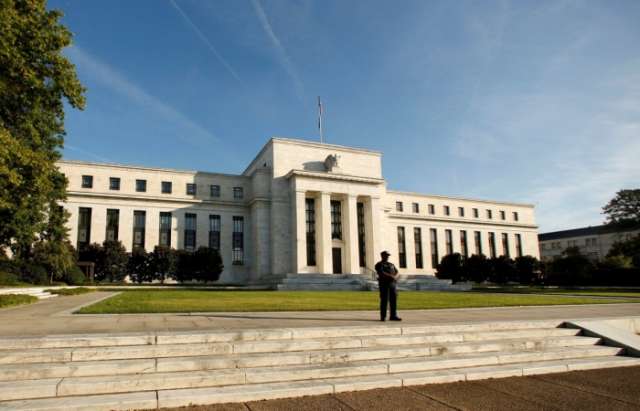Brent crude oil was last down 2.7% at $51.66 a barrel, around a three-month low, after oil prices fell 5% in the previous session—their largest one-day fall in more than a year. U.S. oil inventories are now at the highest level since weekly stockpile data started being recorded in 1982, deepening investors’ concerns about oversupply.
Marathon Oil Corporation fell 2.5% in U.S. premarket trading, while shares of Royal Dutch Shell PLC fell 3.6% in London and BP PLC fell 2.7%.
Mining shares also declined with metals prices including, zinc, nickel, copper and gold under pressure as the dollar continued to firm.
A stronger-than-expected U.S. employment reading on Wednesday continued to lift the U.S. dollar and lean on commodities and sovereign-debt prices, as expectations grew for a U.S. interest rate rise next week.
The WSJ Dollar Index was last up 0.1%, on track for a fourth session of gains, while 10-year U.S. Treasury yields rose to 2.657% Thursday from 2.552%, their highest settlement this year. Yields move inversely to prices.
A rate increase isn’t likely to cause much volatility, said Khiem Do, head of Asian multiasset investments at Barings. The Fed is still “normalizing,” not “tightening” policy, he said.
Meanwhile, monetary policy has remained ultra-accommodative in Europe and Japan, helping underpin the resilience of stock markets to a rising rate environment in the U.S., according to Fahad Kamal, strategist at Kleinwort Hambros, the U.K. arm of Société Générale Private Banking.
”People have to earn income from investment assets, and that just doesn't exist in bonds and cash, it only exists in equities” right now, he said.
The ECB concludes its latest meeting and press conference midday in Europe Thursday. The bank is widely expected to leave its stimulus unchanged despite an improving economy after only recently expanding its program of quantitative easing by a half-trillion euros.
German 10-year yields rose to 0.377% from 0.374% Wednesday, while the euro was up 0.2% at $1.0560 after Germany’s Ifo institute called on the ECB to start winding down its massive bond-purchase program from next month or risk pushing inflation too high.
Inflation in the eurozone has suddenly jumped to 2%, slightly above the ECB’s target, after hovering around zero for years.
“The eurozone recovery continues, and it’s more assured now than it was three months ago,” said David Owen, chief European Economist at Jefferies.
Still, Mr. Owen expects “business as usual” from ECB President Mario Draghi ahead of a number of key eurozone elections in the coming months.
Earlier, energy and mining shares fell across Asia, tracking declines in their U.S. peers.
Stocks in Hong Kong, Shanghai and Taiwan also moved lower following data on consumer inflation in China. The Shanghai Composite fell 0.7%, while Hong Kong’s Hang Seng Index was off 1.2% and Taiwan’s Taiex shed 1%.
China’s consumer-price index inched up 0.8% in February from a year earlier, compared with a 2.5% gain in January. China’s producer-price index rose 7.8% last month from a year earlier, the statistics bureau said, the highest since September 2008. Economic data during the first two months of the year tend to be volatile, however, because the timing of China’s largest holiday shifts from year to year.
Japan’s Nikkei rose 0.3% as a weaker yen helped boost export-reliant stocks and higher bond yields supported the financial sector.
In corporate news, shares of Akzo Nobel climbed 14.6% after the Dutch paints and chemicals maker said it rejected an unsolicited €20.9 billion ($22.1 billion) offer from U.S. peer PPG Industries Inc.
Shares of Rio Tinto PLC fell 2.3% in London after its Chairman Jan du Plessis said he would step down in the coming year.
/WSJ/
More about: #stocks















































